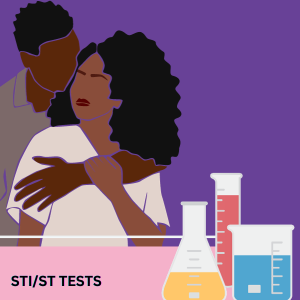
Get the Laboratory Tests
You Want,
When You
Want Them.
Commonest Tests
Want to see all the tests?
We have more than 1000 laboratory tests for you or your patient to choose from..
Kenya’s Most Affordable DNA Paternity Test
Getting Online Laboratory Tests:
As Easy As 1-2-3
Find Your Blood Tests
The Benefits of Our Online Laboratory Testing Platform
1️⃣Save on Labs
Enjoy the best possible low prices negotiated with our testing partners, with up to 90% off.
2️⃣Widest Range of Tests
Easily find your laboratory tests, however esoteric or specialized, all in one place.
3️⃣Convenience
Once you choose your tests, our system connects to an accredited testing laboratory nearest to you.
4️⃣Online Results Portal
Access your reports at any time from our secure client portal, and share them with your doctor at the touch of a button.
Latest From Our Blog
Latest Post
- HPV Testing in Kenya: A Critical Tool For Early Cervical Cancer Screening
- Cervical Cancer Screening In Kenya: Everything You Need to Know
- Amoebiasis in Kenya: 4 Laboratory Techniques for Accurate Diagnosis
- Pap Smear Test in Kenya: Powerful Protection from Cervical Cancer
- Role of Laboratory Tests in Sickle Cell Disease in Kenya
- Certification and Accreditation of Medical Laboratories in Kenya: Ensuring Accurate Results for Better Healthcare
- DNA Paternity Testing in Kenya: Everything you need to know (Updated 2024)
- DNA Paternity Testing Questions: Your Top 17 Queries Answered
- Choosing a Medical Laboratory in Nairobi: 7 Crucial Considerations
- Affordable Laboratory Tests in Kenya: Your Guide to Smart Preventative Health Choices
- How to Know Your ABO Blood Group and Why it Can Save Your Life
- Immunohistochemistry (IHC): Key to Cancer Diagnosis
- Fine Needle Aspiration (FNA) Cytology: A Tool for Quick Diagnosis
- Understanding The Threat Of Prostate Cancer And Why Screening and Early Detection is Your Best Bet.
- Biopsy procedure in Kenya: A crucial diagnostic aid in cancer
- Prostatic Specific Antigen (PSA) – Critical role in Prostate Cancer screening.
- 5 High Impact Research Areas to Tackle Esophageal Cancer in Kenya
- 9 Common Reasons For DNA Paternity Tests
- Utility of Blood Cultures in Disease Diagnosis and Management
- Digital Cervical Cancer Screening in Kenya with AI-Enabled Technology
{"ticker_effect":"slide-v","autoplay":"true","speed":"5000","font_style":"normal"}
Click here to Order Your Test Today!






